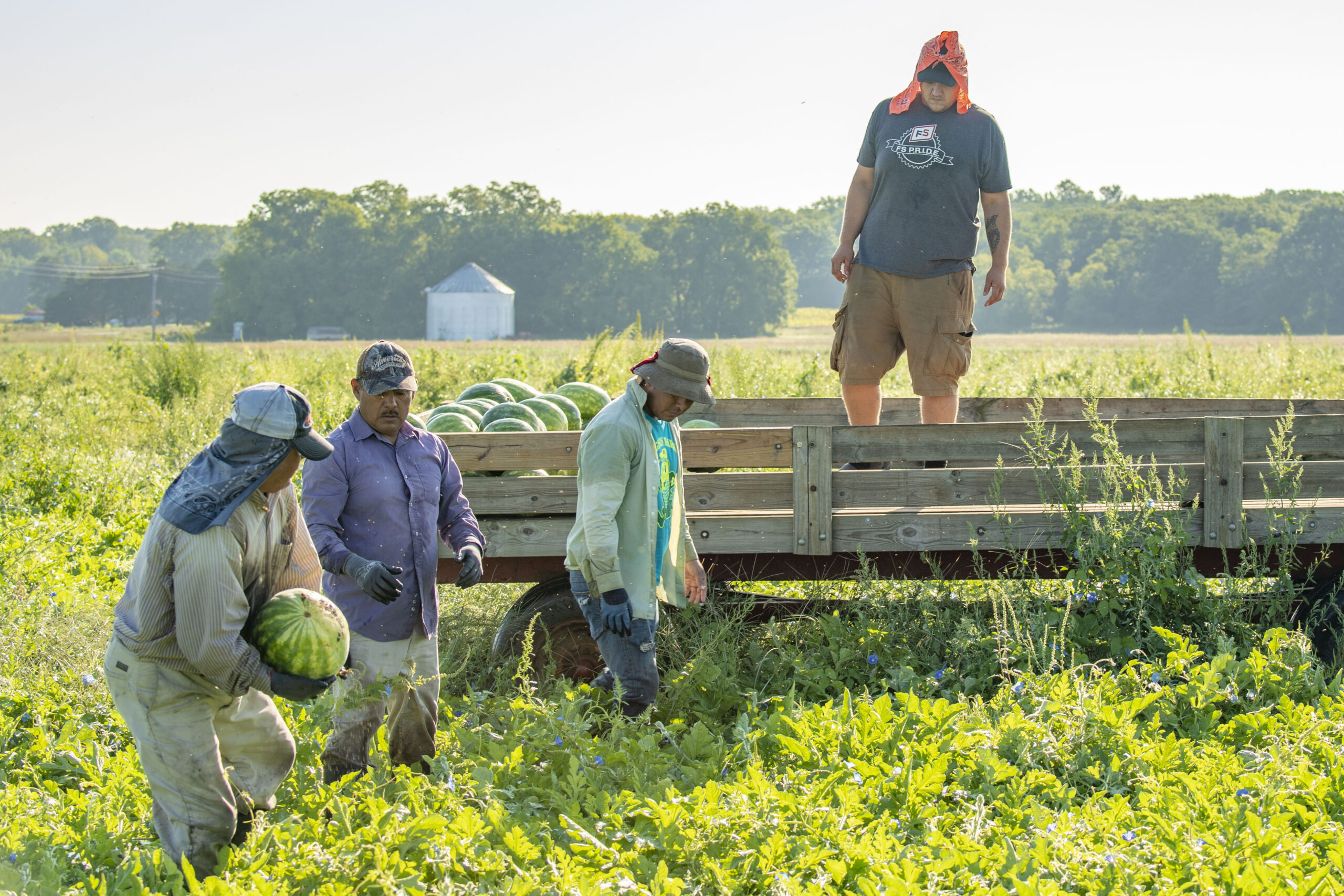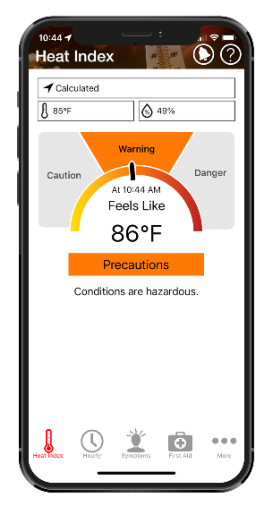Several types of heat-related illnesses can affect workers and symptoms may be non-specific. When a worker is performing physical labor in warm environments, any unusual symptom may be a sign of heat illness. The chart below from OSHA outlines symptoms and signs that may indicate heat stress. Note that common signs and symptoms include muscle pain, weakness or fatigue, dizziness, heavy sweating, and rapid heart rate.
|
Heat-Related Illness |
Symptoms and Signs |
|
Heat stroke |
|
| Heat exhaustion |
|
| Heat cramps |
|
| Heat syncope |
|
| Heat rash |
|
| Rhabdomyolysis (muscle breakdown) |
|
Employers and workers should become aware of symptoms related to heat stress and heat illness. In addition, knowing what to do when someone is showing signs of heat illness is very important. This resource from NIOSH describes the appropriate first aid for each of these illnesses. Prompt action to provide first aid can make a difference in recovery of persons with heat illness. Multiple heat-related illnesses can occur together, and time is of the essence.
When in doubt, place the worker in a cool environment and call 911.




